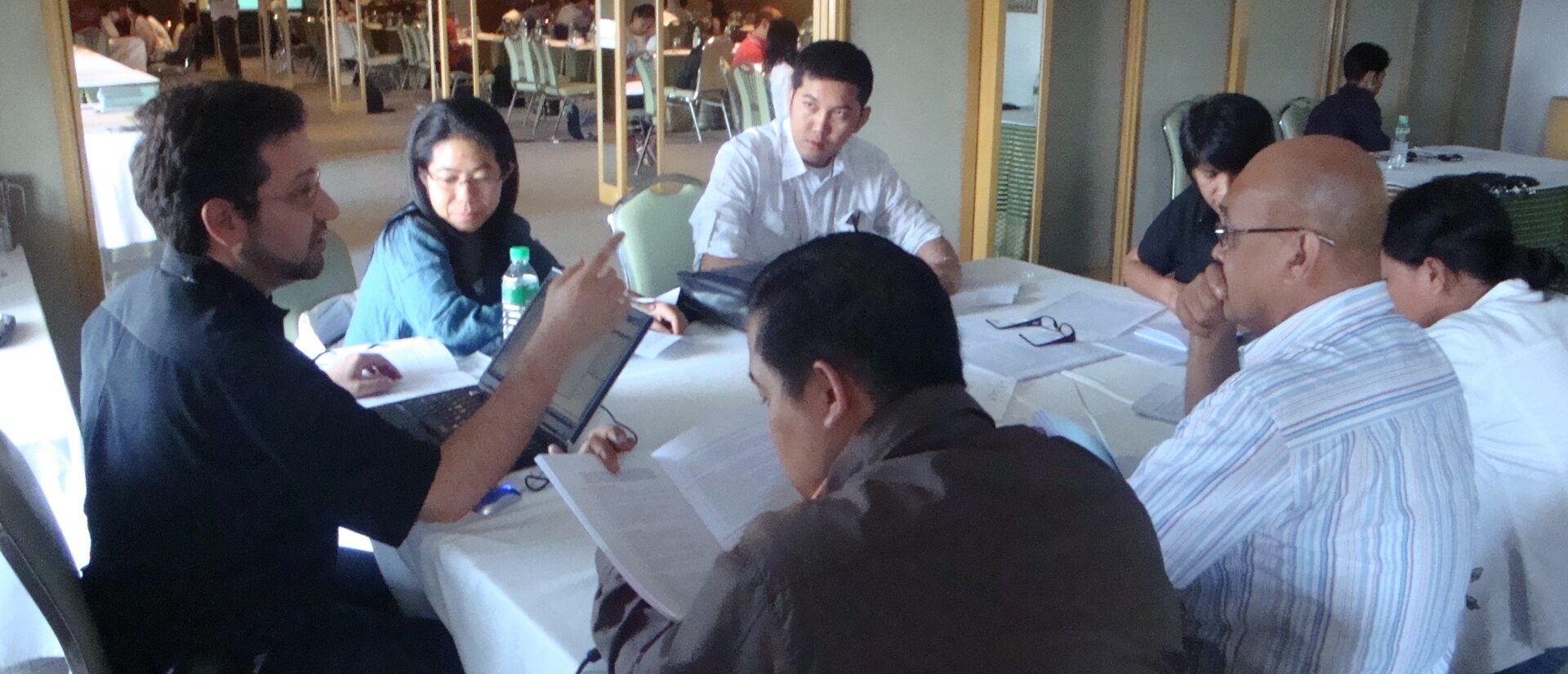
Outcomes of the OECD Watch and DTP Capacity Building Seminar in Bangkok, Thailand
At the same time as economists, researchers and government representatives met to discuss ‘Trade-led Recovery and Beyond’ at the United Nations Economic and Social Commission for Asia and the Pacific (UNESCAP) First Asia Pacific Trade and Investment Week in Bangkok, Thailand, a group of 45 participants from 15 countries in the Asia-Pacific region met to participate in a capacity building program organized by OECD Watch and the Diplomacy Training Program (DTP) entitled ‘Corporate Accountability: Tools to Promote Responsible Business Conduct’ from 4-6 November 2009 in Bangkok, Thailand.
The capacity building program was designed to follow up on many of the issues raised in the UNESCAP/OECD Conference by training participants in the use of tools such as the OECD Guidelines for Multinational Enterprise and in doing so provide participants with practical knowledge on how to hold business accountable for corporate misconduct such as human rights abuses and environmental pollution.
The training program opened with a public multi-stakeholder event that aimed to generate debate and an exchange of perspectives from a broad range of stakeholders including, governments, business, trade unions, and NGOs. The multi-stakeholder event presented a unique regional perspective on how to make current corporate accountability mechanisms work more effectively in an Asian context. Many of those who had presented during the UNESCAP/OECD conference also participated in the multi-stakeholder forum: Are-Jostein Norheim, Norway’s CSR Ambassador; Michel Doucin, France’s CSR Ambassador; Ravi Fernando of the Sri Lanka Institute of Nanotechnologies and Paul Hohnen of Sustainability Strategies. The event also benefited greatly from the presence of regional panelists Cecil Tuico of the Philippines’ Workers Assistance Program, Professor Vitit Muntarbhorn from Thailand’s Chulalongkorn University and Chandra Roy from the United Nations Development Program, Thailand.
In addition to theoretical discussions and debates, the program contained practical exercises and workshops. Participants especially welcomed the opportunity to participate in a National Contact Point (NCP) role-play where complaints were developed and presented to Mr. Herman Mulder, a current member of the Dutch NCP.
A variety of technical classes were held: Serena Lilywhite of Oxfam Australia shared her experience with participants on research a company and its supply chain, Patrick Earle of the Diplomacy Training Program conducted a session on media and advocacy strategy and Surabhi Chopra of the Business & Human Rights Resource Centre helped participants examine legal avenues for redress and other grievance mechanisms.
"Corporate Accountability: Tools to Promote Responsible Business Conduct" was the second OECD Watch capacity building training program in the Asia-Pacific region, the first having taken place in India in 2007. The participants came from a wide range of organizations including trade unions, universities, education and research centers and small and large NGOs.
Related news
-
 Dutch State accused of failing to prevent genocidePosted in category:Case
Dutch State accused of failing to prevent genocidePosted in category:Case Lydia de LeeuwPublished on:
Lydia de LeeuwPublished on: -
-
 The Counter: strengthening the fight for climate justice around the worldPosted in category:Long read
The Counter: strengthening the fight for climate justice around the worldPosted in category:Long read Luis ScungioPublished on:
Luis ScungioPublished on:

